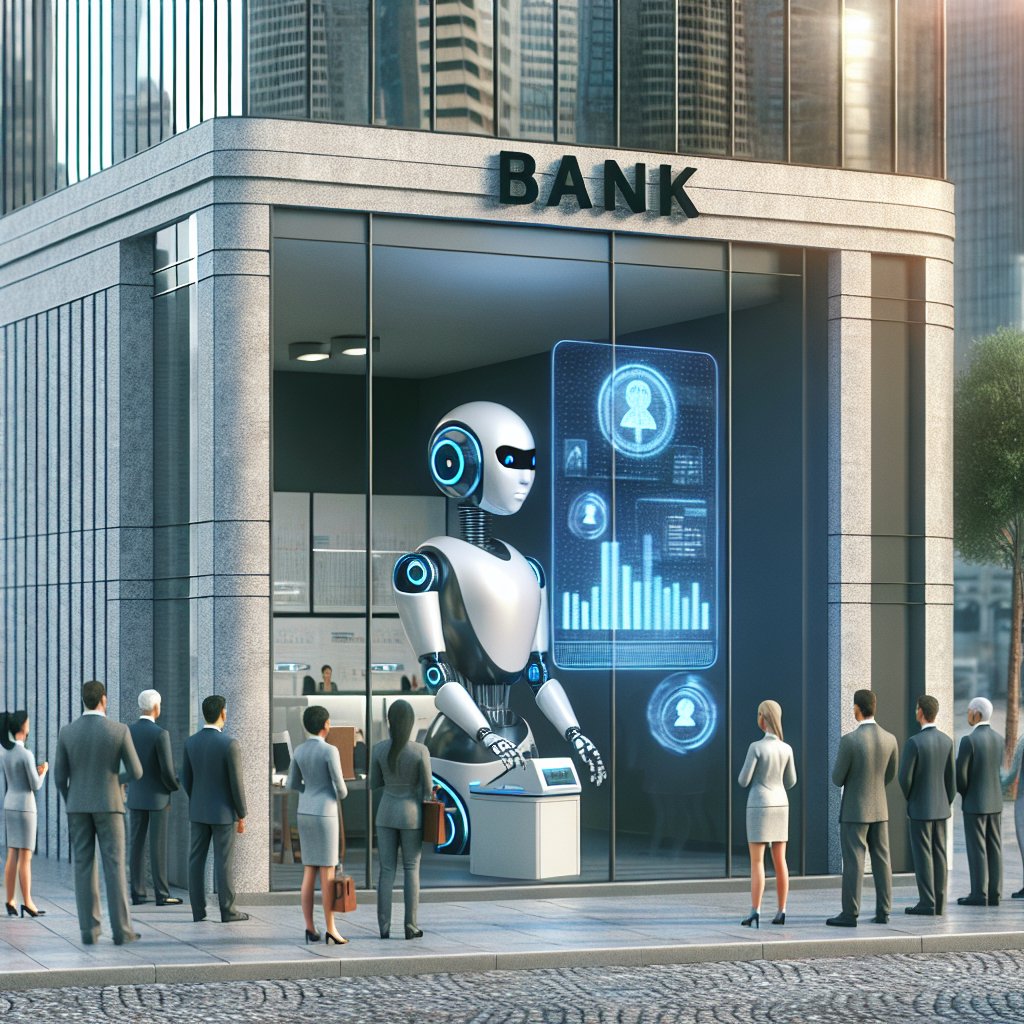The rapid evolution of artificial intelligence (AI) technology has sparked intense debate and speculation about the future role of bankers in the financial industry. Will AI replace bankers, or will it become an indispensable tool that enhances their capabilities? As banks increasingly embrace digital transformation, we examine the potential for AI to reshape the landscape of banking, posing critical questions about job security, the changing nature of financial tasks, and the adaptability of today’s financial experts in an AI-dominated future.
Use of AI for Bankers
The integration of Artificial Intelligence (AI) into the banking sector has marked a revolutionary shift in the way financial institutions operate. Embracing AI technology, bankers have found powerful tools to enhance customer service, improve decision-making, and streamline operational efficiency. With AI at their disposal, bankers can now offer personalized banking experiences through chatbots and virtual assistants, analyze vast amounts of data for informed lending decisions, and implement advanced algorithms for real-time fraud detection. The convergence of AI with traditional banking practices has not only heightened the overall banking experience for customers but also empowered professionals with data-driven insights and automation opportunities.
In the realm of predictive analytics and risk management, AI is emerging as a game-changer for bankers. Sophisticated machine learning models are being used to anticipate market trends, manage assets, and navigate the complexities of regulatory compliance. These AI-driven systems enable bankers to take pre-emptive action against potential risks and make strategic investment decisions that benefit both the banks and their clients. As the financial landscape continues to evolve, AI technologies are becoming increasingly indispensable for bankers seeking to maintain a competitive edge and enhance the security and profitability of their institutions.
The Potential for AI to Replace Bankers
The advent of Artificial Intelligence (AI) in the banking sector marks a transformative age where traditional banking practices are being challenged by cutting-edge technology. As customers seek convenience coupled with security, AI steps in, offering personalized financial services and automating complex operations once solely handled by bankers. From predicting market trends using intricate algorithms to managing vast amounts of customer data for custom offerings, AI’s integration heralds a new era for the industry. The potential for AI to vigilantly detect fraudulent activities and streamline back-office operations also sets the stage for greater efficiency. With such capabilities, the banking landscape is poised for a significant shift as AI technologies like machine learning, natural language processing, and robotic process automation redefine the roles and responsibilities within the sector.
How is AI Transforming Banking Customer Service?
The paradigm of banking customer service is undergoing a revolutionary shift, thanks to the infusion of Artificial Intelligence (AI) technologies. Today, AI stands at the forefront of customer service innovation, offering personalized banking experiences, round-the-clock availability, and immediate response time that traditional human-led services struggled to provide. By harnessing the power of machine learning, natural language processing, and AI-driven analytics, banks are now able to understand and predict customer needs, customize financial advice, and even detect potential fraud before it occurs. The interplay between AI and customer data is creating a new era of banking where convenience, efficiency, and security are enhanced exponentially, leading to higher customer satisfaction and loyalty.
Banks across the globe are rapidly integrating AI-powered chatbots and virtual assistants, which are redefining the way customers engage with financial institutions. Unlike their human counterparts, these AI solutions require no breaks and can handle thousands of inquiries simultaneously, without compromising the quality of service. As AI continues to grow smarter and more intuitive, it is not only answering routine queries but also performing complex tasks such as processing loan applications and managing wealth portfolios. The impact of AI on banking customer service is crystal-clear: reduced overhead costs, decreased wait times, and a transformative banking experience tailored to the digital age.
What Roles in Banking Can AI Not Perform?
The integration of artificial intelligence (AI) into the banking sector has revolutionized numerous processes, making transactions faster and more efficient. However, there are specific roles within banking that AI currently cannot perform, primarily due to the nuanced human judgment and interpersonal skills required. Complex decision-making processes that involve ethical considerations, empathetic communication with clients, and the understanding of intricate financial situations remain the domain of human bankers. While AI can support and streamline operations, the necessity for personal touch, trust-building, and relationship management in banking is irreplaceable by algorithms or robotic systems, ensuring continued demand for human expertise in these areas.
Will AI in Banking Create New Job Opportunities?
The integration of artificial intelligence (AI) into the banking sector is not just revolutionizing the way financial services operate but is also reshaping career trajectories. As AI augments banking operations, from customer service chatbots to complex fraud detection algorithms, the stage is set for the emergence of new job opportunities. Experts in AI and machine learning are increasingly in demand to build and maintain these intelligent systems, leading to a surge in specialized roles within the banking industry. Furthermore, professionals who can bridge the gap between technical AI solutions and business applications are becoming invaluable to banks looking to leverage AI to enhance customer experiences and streamline processes.
The transformation brought about by AI in banking also necessitates a workforce that can adapt to and work alongside sophisticated technologies. While automation may streamline certain tasks, there is a growing need for human oversight in areas such as ethical decision-making and the interpretation of AI-driven analytics. As banks integrate AI into more aspects of their operations, roles centered on AI governance, compliance, and management will become increasingly important. The evolution of AI in banking thus presents a dual-sided coin: the potential displacement of traditional banking roles on one side, and the creation of innovative job opportunities on the other, fostering a banking ecosystem ripe with possibilities for those equipped with the skills of the future.







